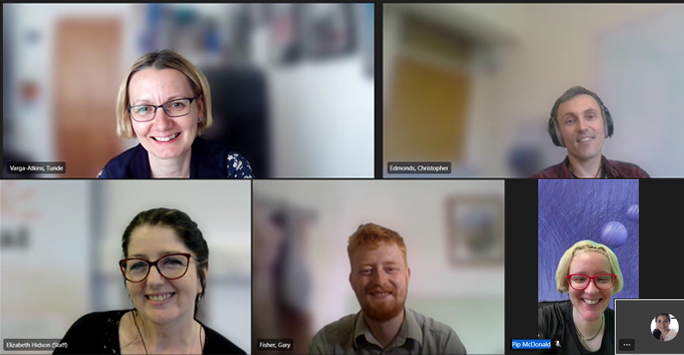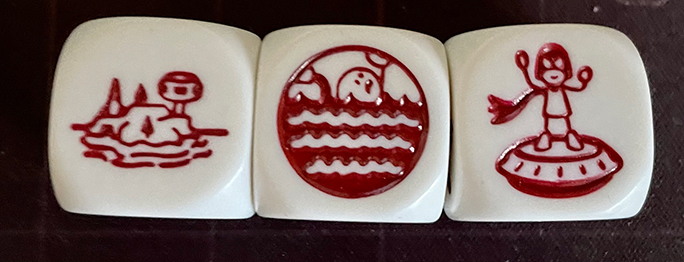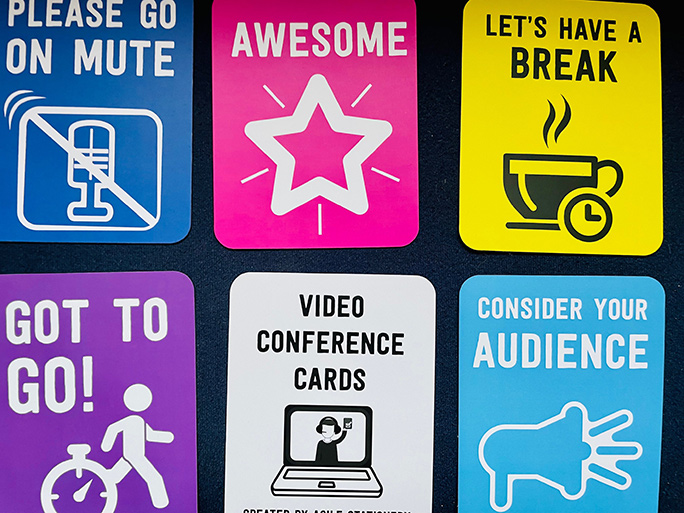Treasure Island Pedagogies: Episode 20 - the one with the kettle and the mug
Posted on: 10 June 2022 by Dr Tunde Varga-Atkins in General

In Episode 20, in addition to lightbulb moments, treasure island pedagogies/props and luxury items, our islands have included adjusting our teaching to work-based learning, the importance of tea breaks in the staff room, getting students to use their curiosity to construct research problems, mental shortcuts for research projects to agile stationery and co-creating a shared dictionary for teaching.
Speakers: Dr Christopher Edmonds, Dr Elizabeth Hidson, Dr Gary Fisher & Pip McDonald
Date: 23 May 2022
Treasure Island Pedagogies: Episode 20 podcast
(Treasure Island Pedagogies Episode 20 - podcast transcript)
Read or listen to find out our guests’ lightbulb moments, teaching props, pedagogies and luxury items that they would take to their Treasure Islands for precious contact time with students.
Dr Chris Edmonds
University of Liverpool, England
- Original discipline(s): Particle accelerator physicist
- Current role: Lecturer, Department of Physics (teaching innovation and public engagement)
- Lightbulb moment: I’ve always enjoyed watching how far many students will take an idea given the opportunity. Physics is a creative subject, but it’s often introduced in school as facts and procedural problem solving (here’s this well-defined problem, what off-the-shelf solution do you use?). That’s not entirely a bad thing, there’s quite a bit of structure to get to grips with before you become an effective physicist, but there is so much more to being a good physicist… The first opportunity to initiate an investigation yourself can be intimidating, what makes a good question? But once started, the questions keep on coming, and the significant opportunities for independent learning with it. Experience in completing open-ended projects is an important developmental opportunity and is critical in accessing the most interesting physics problems.
- Teaching prop or pedagogy: Anything that inspires curiosity-driven learning. Things that lead people to want to ask questions and figure out how something works. Take two tubes of equal dimensions, one plastic, one copper. A magnet falls freely through the plastic tube, but falls very slowly through the copper tube. The result is surprising, which feels good. Can you build up a story of how this is working using your existing knowledge, or do you need to know more?
- Luxury item: Audible. All of it. (and something to listen on…)
Dr Elizabeth Hidson
University of Sunderland, UK
- Original discipline(s): Education: teaching computing at secondary school
- Current role: Senior Lecturer in International Teacher Education
- Lightbulb moment: when I meet with my students online to talk about their work and I hear the echoes of what I have been teaching and see them engage critically with research and theory. I love it when they are confident enough to have an independent perspective. One of my prompts is to ask what they would say if they invited X writer to dinner – how would that conversation go?
- Teaching prop or pedagogy: mental shortcuts. I try to demystify and scaffold my postgraduate trainee teachers’ academic writing by using a title-construct-o-matic idea, a methodology formula, an inverted pyramid approach to literature reviews set against the idea that their assignments are their chance to ‘put their money where their mouth is’ in terms of critical engagement with the application of educational theory and research to their practice in the classroom.
- Luxury item: For me personally, it would have to be a coffee machine and unending supply of coffee; professionally, it would have to be a top-end webcam because I teach on an international distance learning programme and the webcam is my channel to my students. If I had a luxury item fund, I’d buy a whizz-bang, top of the range webcam!
Dr Gary F. Fisher
Lincoln College, UK
- Original discipline(s): Classics: History, Philosophy, and Latin Language
- Current role: Lecturer in Initial Teacher Education and Technology Enhanced Learning
- Lightbulb moment: The tea break. Watching students on one of my Teacher Education courses, who are already professional and experienced teachers, use the tea break during one of our sessions to continue discussing some of the models we were learning about and collaboratively applying them to the sessions they were teaching that afternoon. Realising that the value of a teacher education course is not only as a place for trainee teachers to be taught about teaching, but also as a workshop in which they can collaboratively produce, apply, and reflect on the resources and strategies that they will use in their teaching practice. Embracing the fact that an experienced professional studying alongside full-time work ought not be taught in the same way that I would teach an 18-year-old undergraduate on a full-time course at a university.
- Teaching prop or pedagogy: A kettle and a mug (and ideally something to go in it).
- Luxury item: Not quite an item, but a day out with my two-year-old son and my phone left at home is the perfect luxury item to decompress and forget about my teaching life.
Pip McDonald
Royal Agricultural University (RAU), UK
- Original discipline(s): Philosophy, Curating, Education
- Current role: Senior Learning Technology Project Officer
- Lightbulb moment: Royal Agricultural University (RAU) Digital Transformation blog. Blogging was to make sense of the impact of the global pandemic and online pivot. A platform to ask and answer critical pedagogical questions and solve “wicked” problems. A wicked problem can be defined “...as a complex issue that defies complete definition, for which there is no final solution, since any resolution generates further issues, and where solutions are not true or false or good or bad, but the best that can be done at the time” (Rittel & Webber, 1973 in Brown, Harris & Russell, 2010: p4).
- Teaching prop or pedagogy: Rory’s Story Cubes - An opportunity for collaborative storytelling and to explore “polyvocality” and other creative outcomes (Eringfeld, n.d.). Could be used for “crowdsourced poetry” (Simpson, n.d.). Agile stationery - found objects that we can use in online classroom, communicating in the “Brave New Digital Classroom” (Blake, 2013).
- Luxury item: Guitar or radio. Songwriting in a group. Set up a radio station to broadcast from the island for example DS106 Radio a “free form live radio station”.
Any sparks? How might our joined-up Treasure Islands look like?
Lots of bartering, sharing coffee machines, staff room discussions, awakening curiosity of students to ask questions, and listening to lots of audio in different forms, from books to radio to keep busy and relaxed on the island – whilst we also concocting plans to cook up a common dictionary for educators as a shared language for everyone who is more than welcome on our joint island to talk pedagogy.
Links / resources
Chris
- Audible – collection of audio books
Pip
- Rory’s Story Cubes

- Agile stationery - a paper-card version of some online cues for online classrooms, as mentioned under teaching prop

Can be used for hybrid classrooms. What is stationery? What could virtual stationery be? Agile stationery can go across face-to-face and online classrooms? Can you create your own personalised agile stationery?
References
- Agile Stationery (2022) Agile Stationery (Online) [Accessed: 7 June 2022]
- Blake, R, J (2013) Brave New Digital Classroom Technology and Foreign Language Learning (Washington D.C: Georgetown University Press)
- Brown, V, A, Deane, P, M, Harris, J, A & Russell, J, Y. 2010. Towards a Just and Sustainable Future. In: Brown, V, A, Harris, J, A, & Russell, J, Y. eds. Tackling Wicked Problems: Through the Transdisciplinary Imagination. Oxon: Routledge 2010. Ch. 1
- DS106 Radio (n.d.) What is ds106 Radio? (Online) [Accessed: 7 June 2022]
- Rory’s Story Cubes (n.d.) Here are Rory’s Story Cubes (Online) [Accessed: 7 June 2022]
- Royal Agricultural University (RAU) Digital Transformation Blog n.d. [Accessed: 7 June 2022]
- Simpson, D, n.d. (Online) Crowdsourced Poetry (Online) [Accessed: 7 June 2022]
- University of Cambridge (n.d.) Gates of Cambridge Class of 2022 (Online) [Accessed: 7 June 2022]
Facilitated by Dr Tünde Varga-Atkins, Sound: Sandra Samaca, Web design: Dennis Wong, @LivUniCIE
Keywords: Treasure Island Pedagogies, Podcast, Innovation, Education, Interdisciplinary, Curiosity, Creativity, Work-based Learning, Informal Learning, Blogs.